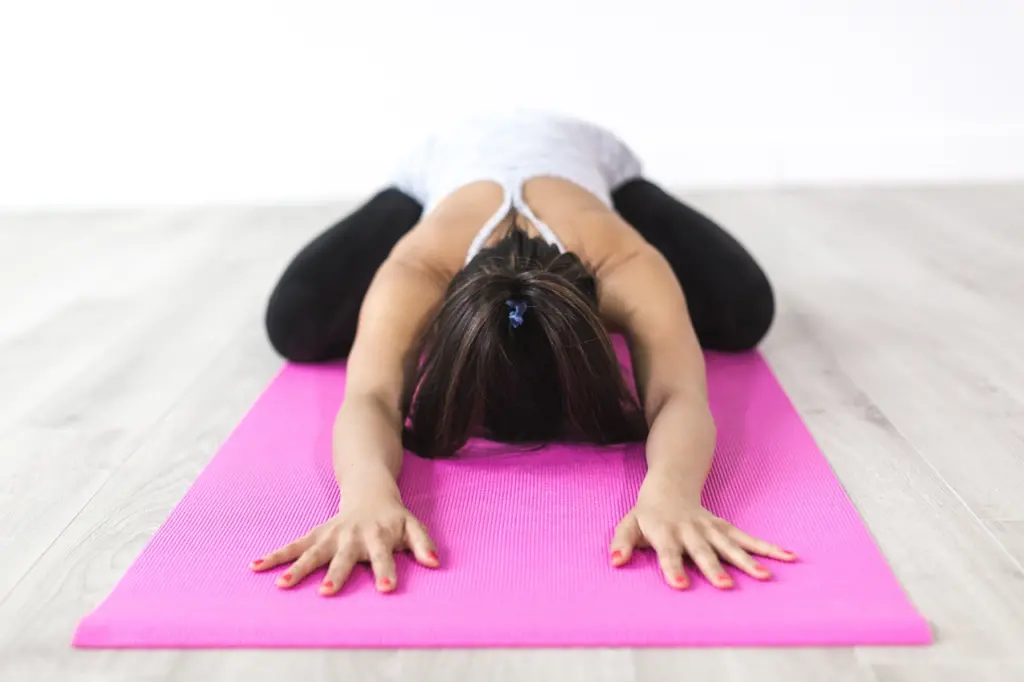- Introduction
- Understanding Stress and Its Impact
- Thai Massage: An Ancient Art
- How Thai Massage Relieves Stress
- The Science Behind Thai Massage
- Types of Thai Massage for Stress Relief
- Thai Massage vs. Other Stress Relief Methods
- Preparing for Your Thai Massage Experience
- Can Thai Massage Relieve Stress? Research Insights
- The Journey to Tranquility
- Conclusion
Introduction
In the bustling, fast-paced world we live in today, the relentless demands of daily life can take a toll on our physical and mental well-being. Stress has become an all-too-common companion for many, manifesting in various ways, from tense muscles to a racing mind. While there are countless ways to cope with stress, one ancient practice has stood the test of time and continues to offer profound relief: Thai massage.
At Mai Thai Massage, we understand the challenges that modern life brings and the importance of finding effective ways to alleviate stress. Thai massage, with its roots deeply embedded in the traditions of Thailand, has emerged as a powerful solution to combat the pressures of our contemporary world. In this article, we will explore the transformative potential of Thai massage as a stress relief solution, delving into its unique techniques, historical significance, and scientific backing.
As we embark on this journey of unlocking tranquility through Thai massage, you’ll discover that it offers more than just a temporary escape from stress; it provides a path towards holistic well-being. Our mission at Mai Thai Massage is not just to offer services but to guide you toward a state of balance and serenity. Through this article, we aim to shed light on the lesser-known aspects of Thai massage for stress relief, offering insights and information that you may not find in typical spa literature.
While many articles focus solely on the immediate relaxation provided by massage therapy, we will explore the deeper dimensions of Thai massage. From the historical context that gives it its rich heritage to the scientific explanations that underpin its effectiveness, our goal is to provide you with a comprehensive understanding of how Thai massage can be a powerful tool in your journey to conquer stress.
So, join us as we embark on a quest to unlock tranquility, one Thai massage at a time. Let’s dive into the world of Thai massage and discover how this ancient art form can help you find relief from the stresses of modern life.
Understanding Stress and Its Impact
Stress is an omnipresent force in our lives, affecting us physically, mentally, and emotionally. It’s essential to comprehend the intricacies of stress and its profound impact before we explore how Thai massage can offer relief. In this section, we’ll dive deep into the understanding of stress and why managing it is of paramount importance.
The Multifaceted Nature of Stress
Stress is not a one-size-fits-all concept. It manifests in various forms and intensities, from the subtle tension of a looming deadline to the overwhelming anxiety of a life-altering event. Understanding that stress is not merely a mental state but a complex interplay of physical and psychological factors is crucial.
-
Physical Effects: Stress triggers a cascade of physiological responses in our bodies. It can lead to increased heart rate, elevated blood pressure, muscle tension, and even digestive issues. Prolonged exposure to stress can contribute to chronic health problems, such as cardiovascular diseases and weakened immune function.
-
Mental and Emotional Toll: Beyond its physical manifestations, stress takes a toll on our mental and emotional well-being. It can lead to anxiety, depression, irritability, and difficulty concentrating. Chronic stress can impair cognitive function and hinder our ability to make rational decisions.
The Need for Stress Management
Given the multifaceted nature of stress and its potential to wreak havoc on our lives, effective stress management is not a luxury; it’s a necessity. Ignoring or neglecting stress can lead to long-term health issues and a diminished quality of life.
-
Preventative vs. Reactive Approach: Many individuals address stress reactively, seeking relief only when it becomes overwhelming. However, adopting a preventative approach is far more effective. Regular stress management practices can mitigate the adverse effects of stress before they escalate.
-
Holistic Well-Being: Stress management should not be viewed as a standalone endeavor but as an integral part of holistic well-being. A balanced life includes strategies to manage stress, enhance mental resilience, and nurture physical health.
Stress and the Fast-Paced World
The modern world’s relentless pace, coupled with the constant demands of work, family, and personal responsibilities, has amplified the prevalence of stress. We often find ourselves caught in a never-ending cycle of busyness, making it challenging to prioritize self-care and relaxation.
-
Technological Overload: The ubiquity of smartphones and digital devices has blurred the lines between work and personal life. The constant connectivity can make it difficult to switch off and unwind.
-
Information Overload: The influx of information from various sources can overwhelm our minds. Constant news updates and social media notifications contribute to mental clutter and heightened stress levels.
-
Lack of Work-Life Balance: Achieving a healthy work-life balance can be elusive in today’s competitive landscape. The pressure to excel professionally often overshadows the need for downtime and relaxation.
As we navigate this stress-ridden environment, it becomes evident that we need effective tools to manage and mitigate stress’s impact. Thai massage, rooted in ancient traditions, offers a unique and promising path to stress relief that goes beyond the conventional approaches. In the following sections, we’ll delve deeper into how Thai massage, with its distinctive techniques and holistic principles, can serve as a beacon of tranquility in our modern world.

Thai Massage: An Ancient Art
Thai massage, known as “Nuad Boran” in its country of origin, Thailand, is more than just a therapeutic practice; it’s a profound cultural and spiritual tradition that dates back centuries. In this section, we’ll journey into the rich history of Thai massage, shedding light on its origins, unique techniques, and the cultural significance that makes it a true ancient art.
A Heritage from the Land of Smiles
-
Historical Roots: Thai massage can trace its roots to over 2,500 years ago, making it one of the oldest healing arts in the world. It evolved from a blend of Indian Ayurvedic medicine, traditional Chinese medicine, and indigenous Thai practices.
-
Sen Energy Lines: At the core of Thai massage are the “sen” or energy lines. Practitioners believe that there are 72,000 sen lines running through the body, and Thai massage aims to work on these lines to promote balance and well-being.
-
Spiritual Connection: Traditional Thai massage isn’t just about physical manipulation; it’s deeply intertwined with spirituality and mindfulness. Practitioners often start sessions with a respectful “wai” (a Thai gesture of respect) and maintain a meditative state throughout the massage.
Techniques That Tell a Story
-
Yoga-Like Stretching: One of the hallmark features of Thai massage is its extensive use of stretching. Clients are guided through a series of yoga-like postures, allowing for improved flexibility and relief from muscle tension.
-
Acupressure and Compression: Thai massage involves applying pressure to specific points along the sen lines. This acupressure technique stimulates energy flow and can alleviate pain and stress.
-
Assisted Breathing: Breathing plays a crucial role in Thai massage. Both the practitioner and the recipient focus on deep, synchronized breathing, enhancing relaxation and promoting a sense of calm.

Cultural Significance
-
Healing Temples: In Thailand, traditional Thai massage is often practiced in temples. It is considered a sacred healing art, and many temples have dedicated areas for massage and bodywork.
-
Generational Wisdom: Thai massage is often passed down through generations within families. It’s a cherished tradition where knowledge is transferred from master to apprentice.
-
Community Bond: In Thai villages, massage was traditionally a communal activity, with neighbors and family members coming together to help each other relax and heal.
The beauty of Thai massage lies not only in its physical benefits but also in its ability to connect individuals to a centuries-old tradition deeply rooted in spirituality and culture. As we explore further into this article, we’ll unravel how these ancient techniques and principles can be harnessed in the modern world to provide profound stress relief and promote overall well-being. Thai massage is not just a treatment; it’s a holistic journey towards tranquility.
How Thai Massage Relieves Stress
Thai massage, with its blend of ancient techniques and spiritual principles, offers a unique approach to stress relief. In this section, we’ll delve into the intricate mechanisms through which Thai massage effectively alleviates stress and helps individuals find a path to tranquility.
Muscle Relaxation: A Gateway to Calm
-
Release of Tension: The physical manipulation of Thai massage, including stretching and compression, targets areas of tension and stiffness in the body. This direct approach to muscle relaxation is unparalleled in its ability to provide relief from physical stress.
-
Improved Blood Circulation: As the practitioner applies pressure along the sen lines and stretches the body, blood circulation is enhanced. Improved circulation not only promotes relaxation but also aids in the removal of metabolic waste products that can contribute to muscle soreness.
-
Stress-Relieving Hormones: Thai massage triggers the release of endorphins, our body’s natural feel-good hormones. This surge of endorphins induces a state of relaxation and euphoria, countering the effects of stress hormones like cortisol.

Balancing Energy: Restoring Harmony
-
Energy Blockages: Thai massage operates on the belief that energy blockages along the sen lines can lead to physical and emotional distress. By working on these blockages, Thai massage aims to restore the free flow of energy, bringing about a sense of balance and inner peace.
-
Mind-Body Connection: The meditative and mindfulness aspects of Thai massage facilitate a profound mind-body connection. Clients often report feeling more in tune with their bodies and emotions, which can help them manage stress more effectively.
-
Deep Relaxation: Thai massage induces a state of deep relaxation where the mind can let go of worries and concerns. This mental stillness, combined with the physical relaxation, creates a harmonious state conducive to stress relief.
Holistic Approach: Beyond the Physical
-
Addressing Emotional Stress: Thai massage acknowledges that stress isn’t limited to physical tension. It also affects emotions and mental well-being. The holistic approach of Thai massage aims to address emotional stress by creating a safe and nurturing environment for clients.
-
Restoring Vitality: Beyond relaxation, Thai massage seeks to restore vitality and energy to the recipient. Clients often describe feeling revitalized and rejuvenated after a session, which can counter the fatigue associated with chronic stress.
-
Long-Term Benefits: While Thai massage provides immediate stress relief, its effects are not limited to the session itself. Regular Thai massage sessions can have cumulative benefits, promoting overall well-being and resilience to stress over time.
A Personal Journey
It’s important to note that the experience of Thai massage is highly personal. Each session is tailored to the individual’s needs and preferences. Some may seek profound relaxation, while others may focus on specific areas of tension or discomfort.
Moreover, the connection between the practitioner and the client plays a significant role in the effectiveness of Thai massage for stress relief. Trust and communication are key, allowing the recipient to fully surrender to the experience and reap the maximum benefits.
In the next sections of this article, we will explore the scientific aspects of Thai massage, shedding light on how it impacts the nervous system and hormonal regulation. This deeper understanding will further underscore the effectiveness of Thai massage as a holistic approach to relieving stress and promoting overall well-being.
The Science Behind Thai Massage
Thai massage, with its ancient roots and holistic principles, offers more than just a relaxing experience. It provides tangible, scientifically-backed benefits for stress relief and overall well-being. In this section, we will explore the scientific aspects of Thai massage, shedding light on how it impacts the nervous system and hormonal regulation.
Nervous System Regulation
-
Parasympathetic Activation: Thai massage is known to activate the parasympathetic nervous system, often referred to as the “rest and digest” system. This activation counterbalances the overactivity of the sympathetic nervous system, which is responsible for the body’s stress response. The parasympathetic activation induced by Thai massage leads to a state of deep relaxation.
-
Stress Hormone Reduction: Research has shown that Thai massage can lead to a decrease in stress hormones such as cortisol. Lower cortisol levels are associated with reduced stress and anxiety, contributing to an overall sense of well-being.
-
Improved Sleep: The relaxation induced by Thai massage has a positive impact on sleep quality. Sleep is essential for stress recovery, and improved sleep patterns can significantly reduce stress levels over time.
Hormonal Regulation
-
Endorphin Release: Thai massage stimulates the release of endorphins, our body’s natural painkillers and mood elevators. Endorphins create a sense of euphoria and well-being, counteracting the negative effects of stress hormones.
-
Oxytocin Production: The physical touch and human connection inherent in Thai massage trigger the release of oxytocin, often referred to as the “love hormone.” Oxytocin promotes feelings of trust, bonding, and emotional warmth, helping individuals feel more relaxed and less stressed.
-
Enhanced Serotonin: Serotonin, a neurotransmitter associated with mood regulation, is influenced by Thai massage. Increased serotonin levels can lead to reduced anxiety and improved mood.
Immune System Support
-
Lymphatic Flow: Thai massage includes rhythmic compressions and movements that promote the flow of lymphatic fluid. A well-functioning lymphatic system helps remove toxins from the body, supporting overall immune health.
-
Enhanced Blood Circulation: Improved blood circulation during Thai massage ensures that nutrients and oxygen are delivered to cells more efficiently. This enhanced circulation can contribute to better immune function.
-
Reduced Inflammation: Chronic stress is often linked to increased inflammation in the body, which can lead to various health issues. Thai massage’s stress-reducing effects may help mitigate inflammation and its associated risks.
Cognitive Benefits
-
Mental Clarity: Thai massage’s meditative aspects and focus on deep breathing can lead to improved mental clarity and reduced mental fatigue. Clients often report feeling more mentally refreshed and alert after a session.
-
Stress Resilience: Regular Thai massage sessions can help individuals build stress resilience over time. By reducing the body’s reactivity to stressors, Thai massage promotes a more balanced response to life’s challenges.
-
Enhanced Well-Being: The holistic approach of Thai massage, which addresses both physical and emotional aspects of well-being, can lead to an overall sense of enhanced life satisfaction and happiness.
Understanding the scientific underpinnings of Thai massage not only validates its effectiveness in stress relief but also highlights its potential as a holistic approach to promoting overall health and well-being. In the following sections, we will explore the various types of Thai massage offerings at Mai Thai Massage, emphasizing their specific benefits for stress relief. Each type of massage provides a unique experience tailored to individual needs, further enhancing the effectiveness of Thai massage as a stress management tool.
Types of Thai Massage for Stress Relief
At Mai Thai Massage, we recognize that every individual’s journey to stress relief is unique. That’s why we offer a diverse range of Thai massage services, each tailored to address specific needs and preferences. In this section, we will explore the various types of Thai massage offerings available, emphasizing their distinct benefits for stress relief.
Thai Massage for Relaxation
-
Description: Thai massage for relaxation focuses on inducing a deep state of calm and tranquility. It combines gentle stretches, rhythmic compressions, and a soothing atmosphere to create an environment of total relaxation.
-
Stress Relief Benefits: This type of Thai massage is ideal for those seeking an escape from the daily grind. It helps reduce muscle tension, promotes mental relaxation, and leaves you feeling rejuvenated and stress-free.
Thai Massage with Plai Oil from Wat Po
-
Description: Plai oil, derived from the Plai plant and used traditionally in Thai massage, has potent anti-inflammatory and analgesic properties. Thai massage with Plai oil is a therapeutic option aimed at alleviating pain and tension.
-
Stress Relief Benefits: For individuals dealing with stress-related muscle pain or discomfort, this type of Thai massage can offer significant relief. The combination of Plai oil and Thai massage techniques helps ease physical tension and promote relaxation.
Thai Massage for Office Syndrome
-
Description: Office syndrome is a common condition characterized by neck, head, hand, and arm pain and tension, often caused by prolonged sitting and computer use. This specialized Thai massage targets these specific areas to alleviate discomfort.
-
Stress Relief Benefits: Individuals experiencing the stresses of office work will find this massage particularly beneficial. It relieves tension in the areas most affected by office syndrome, promoting relaxation and reducing stress-related pain.
Thai Barefoot Massage
-
Description: Thai barefoot massage, also known as “Ashiatsu” or “foot pressure,” is a unique Thai massage technique where the therapist uses their feet to deliver deep pressure and strokes. It’s an excellent choice for those who prefer deep tissue work.
-
Stress Relief Benefits: Thai barefoot massage provides deep relaxation by targeting and releasing tension in the muscles. The firm yet soothing pressure can ease stress-related muscle knots and leave you feeling refreshed.
Tailored Experiences
-
Description: At Mai Thai Massage, we understand that every client’s stress relief needs are different. That’s why we offer personalized sessions where we tailor the massage to your specific requirements. Whether you prefer a combination of techniques or have specific areas of tension, we can create a custom experience for you.
-
Stress Relief Benefits: A tailored Thai massage experience ensures that your unique stress points are addressed. This personalized approach can be highly effective in providing stress relief precisely where you need it most.
Swedish Massage
-
Description: In addition to our Thai massage offerings, we also provide Swedish massage, a popular relaxation technique that uses long, gliding strokes and kneading movements to ease muscle tension and promote relaxation.
-
Stress Relief Benefits: Swedish massage is well-known for its stress-relieving properties. It helps calm the nervous system, reduce muscle tension, and induce a deep sense of relaxation, making it an excellent choice for stress relief.
At Mai Thai Massage, our commitment is to offer you a tailored and comprehensive approach to stress relief. Whether you’re seeking relaxation, pain relief, or a personalized experience, our range of Thai massage services is designed to meet your unique needs.
Thai Massage vs. Other Stress Relief Methods
In the pursuit of stress relief, individuals are presented with a plethora of options, ranging from traditional practices to modern interventions. In this section, we will compare Thai massage to other stress relief methods, highlighting the unique advantages that Thai massage brings to the table.
Thai Massage vs. Swedish Massage
Swedish Massage:
- Technique: Swedish massage primarily uses long, gliding strokes and kneading movements to relax muscles.
- Focus: It focuses on muscle relaxation and overall relaxation.
- Stress Relief: Swedish massage is effective for stress relief, promoting relaxation and easing muscle tension.
- Deep Tissue: While it can address muscle knots, it may not provide the same level of deep tissue work as Thai massage.
Thai Massage:
- Technique: Thai massage incorporates stretching, acupressure, and assisted yoga-like postures in addition to rhythmic compressions.
- Focus: It focuses on holistic well-being, including physical, mental, and emotional aspects.
- Stress Relief: Thai massage offers comprehensive stress relief, addressing both physical tension and emotional stress.
- Deep Tissue: Thai massage’s deep tissue work is highly effective in releasing tension and knots.
Unique Advantage: Thai massage’s combination of stretching and acupressure, along with its holistic approach, makes it highly effective for individuals seeking deep relaxation and stress relief.
Thai Massage vs. Meditation
Meditation:
- Practice: Meditation involves mindfulness and mental focus to achieve a state of mental clarity and relaxation.
- Focus: It primarily addresses mental stress and emotional well-being.
- Stress Relief: Meditation is an excellent tool for reducing mental stress, enhancing self-awareness, and promoting emotional balance.
- Physical Tension: It may not directly address physical tension in muscles.
Thai Massage:
- Practice: Thai massage combines physical manipulation with mindfulness and deep breathing.
- Focus: It addresses both physical tension and emotional stress, creating a mind-body connection.
- Stress Relief: Thai massage offers holistic stress relief, making it suitable for individuals dealing with both physical and mental stress.
- Physical Tension: Thai massage directly targets physical tension through stretching and acupressure.
Unique Advantage: Thai massage’s ability to simultaneously address physical and mental aspects of stress sets it apart, offering a comprehensive approach to stress relief.

Thai Massage vs. Yoga
Yoga:
- Practice: Yoga involves a series of postures, breathing exercises, and meditation techniques to promote physical and mental well-being.
- Focus: It aims to enhance flexibility, strength, and inner peace.
- Stress Relief: Yoga is effective for stress relief, promoting relaxation and mindfulness.
- Physical Tension: It may take time to release deep-seated physical tension through yoga practice.
Thai Massage:
- Practice: Thai massage combines physical manipulation with guided stretching and deep breathing.
- Focus: It targets physical and mental stress relief through holistic techniques.
- Stress Relief: Thai massage provides immediate stress relief through deep tissue work and relaxation techniques.
- Physical Tension: Thai massage offers rapid release of physical tension.
Unique Advantage: Thai massage provides quicker relief from physical tension, making it suitable for individuals seeking immediate stress relief.
In summary, while various stress relief methods offer their own benefits, Thai massage stands out for its holistic approach, addressing physical, mental, and emotional aspects of stress simultaneously. Its ability to provide rapid relaxation and release physical tension sets it apart as a comprehensive and effective stress relief tool. In the next section, we will provide tips and recommendations for individuals preparing for their Thai massage experience to maximize its effectiveness.

Preparing for Your Thai Massage Experience
Preparing for your Thai massage session is essential to ensure you get the most out of this holistic and stress-relieving experience. In this section, we will provide valuable tips and recommendations to help you prepare for your Thai massage at Mai Thai Massage.
1. Communication is Key
Before your session begins, take a moment to communicate openly with your massage therapist. Share any specific areas of tension or discomfort you’d like them to focus on, as well as any health concerns or conditions they should be aware of. This information allows the therapist to tailor the massage to your unique needs.
2. Hydration is Vital
Staying well-hydrated before and after your Thai massage is crucial. Hydration helps to flush toxins from your body and can enhance the benefits of the massage. Drinking water before your session can also help prevent dehydration, which can sometimes occur during prolonged bodywork.
3. Dress Comfortably
Wear loose, comfortable clothing to your Thai massage session. Thai massage involves stretching and movement, and loose attire allows the therapist to perform these techniques more effectively. You’ll typically be provided with loose clothing if needed, but wearing your own can add to your comfort.
4. Arrive Early
Arriving a few minutes early for your appointment allows you to relax, complete any necessary paperwork, and prepare mentally for your massage. Rushing to your session can increase stress levels, so plan to arrive with plenty of time to spare.
5. Mindful Breathing
During your Thai massage, focus on your breath. Deep, slow breaths can enhance relaxation and help you connect with the therapist’s movements. It also aids in releasing physical tension and calming the mind.
6. Let Go of Expectations
Approach your Thai massage session with an open mind and without specific expectations. Everyone’s experience is unique, and the therapist will adapt the session to your individual needs. Trust in the process and allow yourself to fully surrender to the experience.
7. Post-Massage Care
After your Thai massage, take some time to care for yourself. Avoid heavy meals or strenuous activities immediately following the session. Instead, indulge in a moment of quiet reflection, enjoy a warm herbal tea, or take a leisurely walk to prolong the sense of relaxation.
8. Consistency is Key
While a single Thai massage session can provide immediate stress relief, consider making it a regular part of your self-care routine. Consistent sessions can lead to cumulative benefits, helping you build resilience to stress over time.
9. Listen to Your Body
Pay attention to how your body responds to the massage. If you experience discomfort or pain during the session, communicate with your therapist immediately. They can adjust their techniques to ensure your comfort and safety.
10. Embrace the Holistic Approach
Remember that Thai massage is not just about physical relaxation; it’s a holistic approach to well-being. Be open to the mental and emotional benefits it can provide. You may find that it not only relieves stress but also enhances your overall quality of life.
By following these preparations and tips, you can make the most of your Thai massage experience at Mai Thai Massage. Thai massage has the potential to not only relieve stress but also contribute to your physical and mental well-being. In the next section, we will delve into research insights and findings that shed light on the effectiveness of Thai massage for stress relief, providing further validation for this ancient practice.
Can Thai Massage Relieve Stress? Research Insights
The ancient practice of Thai massage has garnered growing attention in the realm of stress relief, with researchers exploring its effectiveness and mechanisms. In this section, we delve into research insights and findings that shed light on the ability of Thai massage to alleviate stress, providing further validation for this holistic approach.
The Stress Epidemic
In today’s fast-paced world, stress has become a pervasive issue affecting individuals of all ages and backgrounds. The physical and mental toll of chronic stress can lead to a range of health problems, from anxiety and depression to cardiovascular issues and weakened immune function. Recognizing the need for effective stress management strategies, researchers have turned their attention to alternative therapies like Thai massage.
The Mind-Body Connection
Thai massage’s effectiveness in stress relief lies in its unique combination of physical manipulation, mindful breathing, and meditative elements. Researchers have found that this mind-body connection is a key factor in its stress-reduction capabilities. During a Thai massage session, the therapist’s precise techniques and guided stretching induce a state of deep relaxation, activating the parasympathetic nervous system, which counteracts the body’s stress response.
Cortisol Reduction
Cortisol, often referred to as the “stress hormone,” plays a central role in the body’s response to stress. Elevated cortisol levels can have detrimental effects on both physical and mental health. Studies have shown that Thai massage can lead to a significant reduction in cortisol levels immediately following a session. This reduction in cortisol contributes to a sense of calm and relaxation, counteracting the heightened stress response.
Enhanced Mood and Well-Being
Beyond the physiological effects, Thai massage has been found to enhance mood and overall well-being. Research indicates that the release of endorphins during a Thai massage session creates a sense of euphoria and happiness. Additionally, the human connection and touch inherent in Thai massage trigger the release of oxytocin, promoting feelings of trust, bonding, and emotional warmth. These neurochemical changes contribute to an improved mood and reduced stress.
Improved Sleep Patterns
Quality sleep is essential for stress recovery and overall well-being. Thai massage’s ability to induce relaxation has a positive impact on sleep patterns. Individuals who receive regular Thai massage sessions often report improved sleep quality, reduced insomnia, and a greater ability to unwind, all of which contribute to long-term stress reduction.
Stress Resilience
Research suggests that consistent Thai massage sessions can lead to increased stress resilience over time. By regularly releasing physical tension and promoting relaxation, the body becomes less reactive to stressors. This enhanced stress resilience allows individuals to navigate life’s challenges with greater ease and composure.
The Holistic Approach
What sets Thai massage apart from many other stress relief methods is its holistic approach. While some therapies focus solely on physical relaxation or mental well-being, Thai massage addresses both aspects simultaneously. This mind-body connection creates a profound sense of balance and harmony, making it an effective tool for managing stress in today’s hectic world.
In conclusion, the research insights into Thai massage’s ability to relieve stress provide compelling evidence for its effectiveness. Its impact on cortisol reduction, mood enhancement, improved sleep patterns, and stress resilience makes it a valuable addition to stress management strategies. Thai massage not only offers immediate relief but also contributes to long-term well-being, making it a holistic approach to stress relief worth exploring. In the final section of this article, we will summarize the key takeaways and invite readers to embark on their own journey to tranquility through Thai massage at Mai Thai Massage.
The Journey to Tranquility
In the fast-paced and often chaotic world we live in, finding moments of tranquility is a precious gift to oneself. Thai massage, with its ancient roots and modern applications, offers a path to this elusive state of calm. As we conclude this exploration of Thai massage for stress relief, let’s recap the key takeaways and invite you to embark on your own journey to tranquility through Thai massage at Mai Thai Massage.
Key Takeaways
-
Holistic Approach: Thai massage stands out as a holistic approach to stress relief, addressing both physical and mental aspects of stress simultaneously. Its combination of physical manipulation, stretching, mindful breathing, and meditative elements creates a mind-body connection that promotes relaxation.
-
Cortisol Reduction: Research has shown that Thai massage can lead to a significant reduction in cortisol levels, the stress hormone. Lower cortisol levels contribute to a sense of calm and relaxation, counteracting the heightened stress response.
-
Enhanced Mood: The release of endorphins and oxytocin during Thai massage induces feelings of euphoria, happiness, trust, bonding, and emotional warmth. These neurochemical changes enhance mood and contribute to reduced stress.
-
Improved Sleep: Thai massage’s ability to induce relaxation positively impacts sleep patterns. Regular sessions can lead to improved sleep quality, reduced insomnia, and a greater ability to unwind, all of which contribute to long-term stress reduction.
-
Stress Resilience: Consistent Thai massage sessions can increase stress resilience over time. By regularly releasing physical tension and promoting relaxation, the body becomes less reactive to stressors, allowing individuals to navigate life’s challenges with greater ease.
Your Invitation to Tranquility
At Mai Thai Massage, we invite you to embark on your own journey to tranquility through the transformative power of Thai massage. Our skilled therapists are dedicated to providing you with a personalized and holistic experience that goes beyond traditional massage.
Discover the profound benefits of Thai massage for stress relief:
- Experience the mind-body connection that leads to deep relaxation.
- Reduce cortisol levels and alleviate stress-related tension.
- Enhance your mood and overall sense of well-being.
- Enjoy improved sleep patterns for better rest and rejuvenation.
- Build stress resilience to face life’s challenges with composure.
Whether you’re seeking relaxation, pain relief, or a customized experience, our range of Thai massage services is designed to meet your unique needs. We are committed to helping you unlock tranquility and well-being in the midst of life’s demands.
In closing, we extend an invitation to you to experience the holistic approach of Thai massage for yourself. Begin your journey to tranquility today at Mai Thai Massage, and let the ancient art of Thai massage guide you to a state of deep relaxation and stress relief.
Conclusion
In a world where stress has become an all-too-common companion, the ancient practice of Thai massage emerges as a beacon of hope and tranquility. This journey through the realms of Thai massage for stress relief has revealed its unique and compelling ability to address the modern epidemic of stress in a holistic and profound manner.
Thai massage’s holistic approach, combining physical manipulation, mindful breathing, and meditative elements, creates a deep mind-body connection that promotes relaxation and counteracts the body’s stress response. It is not merely a physical experience but a journey that encompasses mental and emotional well-being.
Research insights have further validated Thai massage’s effectiveness, showcasing its capacity to reduce cortisol levels, enhance mood, improve sleep patterns, and increase stress resilience. These findings emphasize the profound impact Thai massage can have on stress management and overall well-being.
As we conclude this exploration, we extend an invitation to you, dear reader, to embrace the journey to tranquility through Thai massage. It is a path that offers solace and relief from the burdens of modern life, allowing you to find moments of serenity amid the chaos.
At Mai Thai Massage, we are dedicated to providing you with a personalized and holistic Thai massage experience that transcends traditional massage. Our therapists are skilled in the ancient art of Thai massage and are committed to guiding you towards relaxation, rejuvenation, and stress relief.
Take the first step on your journey to tranquility today. Experience the profound benefits of Thai massage and unlock a world of well-being that extends far beyond the massage table. It’s time to prioritize your mental and physical health, and Thai massage is here to support you on this transformative path.

